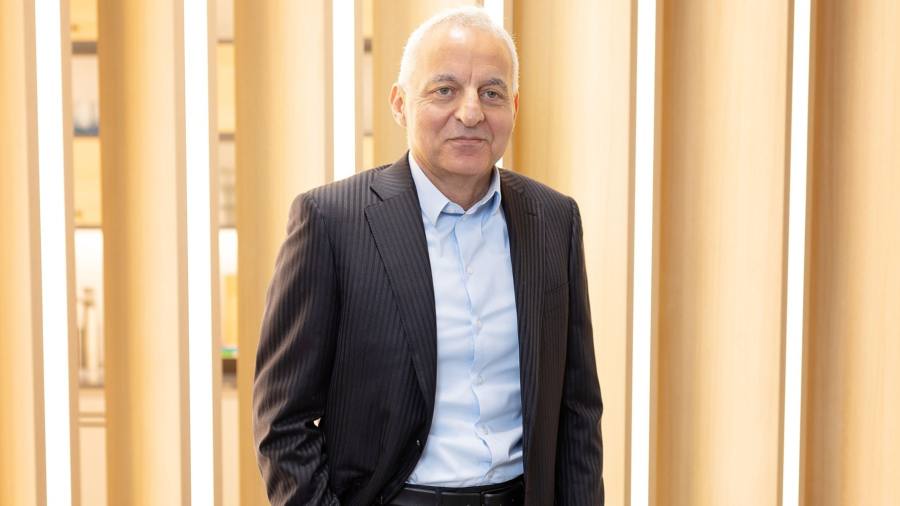The new chief executive of Rolls-Royce has said that one of the company’s key divisions had been “grossly mismanaged” in recent years, pointing to the scale of the challenge facing the FTSE 100 engineering group as it seeks to change course after years of underperformance.
In an interview with the Financial Times, Tufan Erginbilgic, who earlier this year shocked staff and investors by referring to Rolls-Royce as a “burning platform”, was scathing about how its power-systems division had been run.
The subsidiary, which makes diesel and gas engines for ships and trains, generated £3.35bn or 26 per cent of the group’s 2022 underlying revenues. Erginbilgic said that margins in 2022 had decreased even though revenues had risen. Costs had not been kept under control. “That’s mismanagement,” he said.
The business, Erginbilgic added, “needs to have a clear strategy and it needs to be managed properly but it has lots of potential”.
An overhaul of management at the unit is already under way. Erginbilgic said he had been behind the appointment last autumn of a new divisional head after being named as chief executive designate in July. There have been other changes since Erginbilgic formally took the helm at Rolls-Royce in January.
Some shareholders have previously questioned whether Rolls-Royce should sell the power-systems unit. Erginbilgic, however, said he believed that the unit had a role to play within the group in the long term.
The former oil industry executive has moved quickly to make his mark on the 117-year-old company which is still regarded as Britain’s premier engineering group. In addition to power systems, Rolls-Royce’s other two main divisions are civil aerospace and defence. Its civil business builds and maintains large engines for widebody aircraft, including Airbus A350 jets and Boeing’s 787.
The company posted higher than expected annual profits earlier this year, boosted by the recovery in international travel, but Erginbilgic said at the time that it had historically underperformed its peers.
He has shaken up senior management, including the heads of its civil and defence businesses, cut spending on non-core projects and is renegotiating some of its sales and maintenance contracts with customers.
A transformation programme has identified seven areas of improvement, including reducing the company’s working capital and increasing efficiency. It is also looking at synergies across the group, including opportunities to centralise key functions.
Erginbilgic said the company he inherited did not have a clear strategy which could engage the workforce. Rolls-Royce, he added, did not have the resilience nor the right balance sheet strength to invest to grow.
Even in 2019, before the Covid pandemic and the grounding of international air travel that severely dented Rolls-Royce’s balance sheet, the company’s operating leverage — or “how much of your gross margin is absorbed by cash costs” — was the “worst I have seen in my career,” he said.
While the restructuring done by his predecessor Warren East during the pandemic had been the “right thing to do” to stem the outflow of cash, his only criticism is “that they didn’t do it across the group,” he said.
Erginbilgic said he asked the board to defer signing off on the company’s 2023 projections in December last year before he joined, allowing him to work on the annual plan and cut a number of non-core projects.
His focus was on paying down debt and generating cash, with the aim of turning the company into one that was “high performing, competitive, resilient and growing” he said.
A stronger balance sheet and centralised approach in running the company would also help Rolls-Royce compete more effectively against larger rivals such as America’s General Electric, he added.
Erginbilgic also defended his decision to bring in trusted executives from his previous employer BP, including Helen McCabe as its new chief financial officer, despite not being from the aerospace industry. Another former BP executive, Nicola Grady-Smith, is leading the transformation programme. There was a “deep engineering capability” within Rolls-Royce, he added, but employees “have not been led the right way”.
A stronger Rolls-Royce would benefit all stakeholders, he insisted, including customers. “I want Rolls-Royce to stand on its own and create a company in this country that no one needs to worry about”.
Read the full article here




